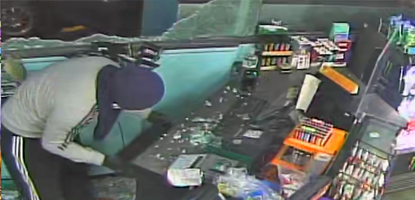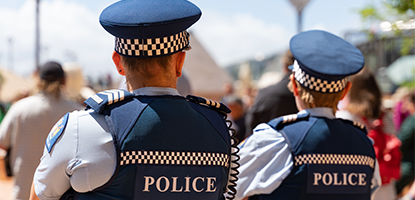1 October 2024
Preventative Police Patrols
MTA is keeping up our call for preventative patrolling of at-risk service stations, especially at night to keep staff and community safe.
Recently, a letter from Lee Marshall, MTA Chief Executive, was published in The Post on the subject of how preventative police patrols would help protect at-risk service station members. His main point – police on the beat is good, however more police in cars would be even better. The letter is part of our ongoing efforts to work with NZ Police and Government on a range of measures. Lee expands on the points raised in his letter in an opinion piece as follows.
More cops in cars, please Minister
It’s pleasing to see Wellington retailers hailing the presence and success of downtown police foot patrols.
Everyone who works or lives in the capital’s inner-city is aware of the threat of crime to retailers. Equally, they will now be familiar with the sight of beat cops patrolling the CBD.
As Sergeant Hamish Knight rightly told The Post recently: “It’s about being visible, a visible reassurance.”
Police on the beat is not a new initiative. In fact, it’s probably as old as policing. It’s a simple concept: seeing police at a business is a deterrent to criminals eyeing it as a potential target. Not rocket science.
The evidence for preventative patrolling – also known as “hotspot patrolling” - is clear.
Take the United Kingdom. As detailed in the April 2024 report “Fighting Retail Crime”, dedicated funding enabled police to target enforcement in areas where anti-social behaviour (ASB), including shop theft-related ASB, was most prevalent.
The approach was piloted in ten areas from July 2023, and by the end of January 2024, 100,000 hours of patrols had resulted in nearly 800 arrests and in some areas, ASB had almost halved.
It is exactly that kind of success – introduced not coincidentally under a right-wing Conservative Government – that is the inspiration for the community patrols here. Police Minister Mark Mitchell, himself an ex-cop, is a fan of traditional policing methods.
The feedback from businesses – such as that detailed in The Post and echoed by Auckland retailers – is exactly the reason why the programme is being widened to include more cops on the beat in the regions. Great.
But there is one glaring hole in the current programme that needs to be addressed. And it’s one that Sergeant Knight inadvertently highlighted when he said officers are spending a lot of time on their feet, and that the team was taking public transport to patrol some suburbs affected by crime.
Taking public transport? This is borderline laughable for a modern force, even if it has the laudable benefit of people on buses feeling more reassured – and is good for carbon footprint!
It is obvious that the community policing philosophy – a highly visible, reassuring presence of police in at risk areas – must be extended to include motorised patrols.
Such patrols would be most effective at night, for retailers who are open late, are lightly-staffed, and therefore vulnerable.
The businesses who need this the most are service stations, who are possibly the most vulnerable retail outlets in the country.
Crime against service stations is unacceptably high. New Zealand Police data for the first six months of 2024 recorded 62 aggravated robberies at service stations – one every three days – and 13,791 instances of theft, mostly drive off fuel theft but also shoplifting from the store.
Contrary to widespread opinion, many service stations are small, independent businesses. Crime is a constant threat – physically to staff and structure, and financially to the bottom line of an operation running on a small margin.
Police have an obligation to protect the businesses. But beyond that they have an obligation to the community to protect them, because every crime against a service station impacts their ability to keep people moving, not to mention the convenience and importance of shopping for things they need.
And the first step to protect them is just so simple: a motorised nighttime patrol making regular sweeps and stops.
Police will say it’s a resourcing issue – and yes, there is sympathy for that – but just one car can cover a lot of territory in a night. It will take so little but deliver so much.
The message to Government, and the incoming Police Commissioner, is simple. If we can have more cops on foot, let’s have some more in cars.



